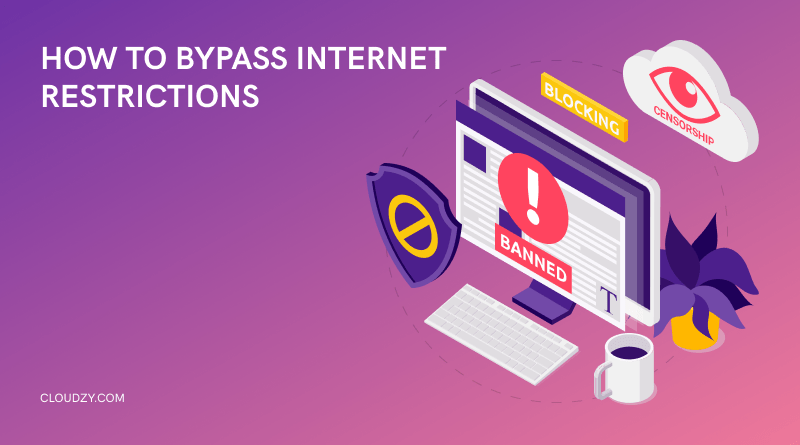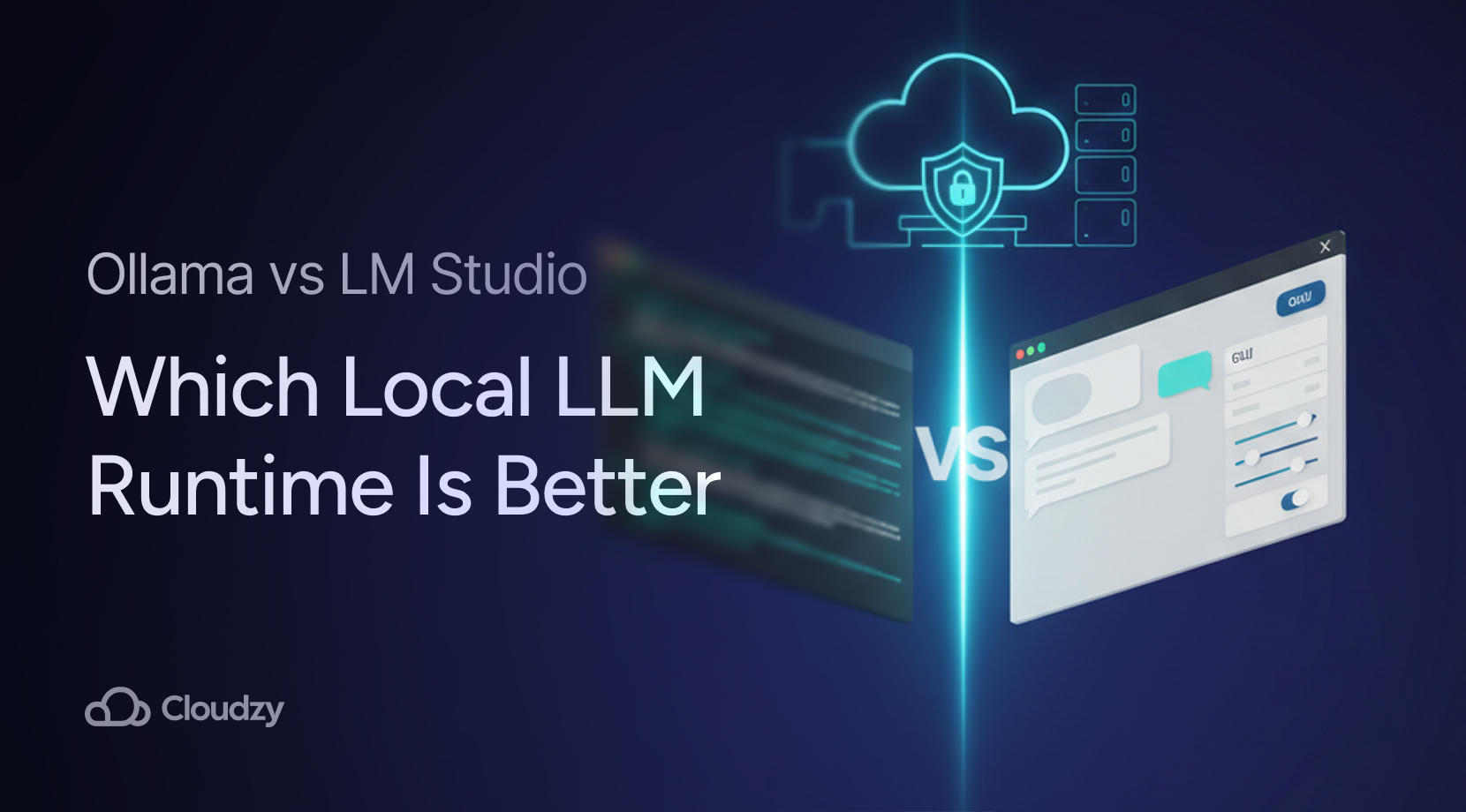One of the growing problems in the modern online world is the slow but steady progress of online restrictions and censorship. As a modern force for connecting people around the world and removing previously extant limitations, the Internet is inherently against such censorship and restrictions. Despite this, different companies, governments, and even internet service providers (ISP) have gone out of their way to create these sorts of problems. But if there’s one thing for certain about the innovative nature of the Internet, it’s that whenever there are problems, the community will always rise to provide solutions.
The question of whether the Internet should be non-restricted and totally free is a delicate matter. On one side, there are paramount concepts, such as freedom of expression and freedom of speech, to be protected in the online sphere. On the other hand, the Internet can be full of damaging content, especially for children. So there may be legitimate grounds to limit certain aspects of the Internet. However, there is no doubt that governments and institutions do abuse their power and these preexisting contexts limit the Internet beyond the required degree, especially in countries like Russia and China.
So in this article, we will look at the different types of online restrictions imposed in different regions of the world, and then we will provide the five best methods to bypass internet restrictions. Let’s get to it.
Definition of Internet Restriction
Any obstacle caused by any institution, company, person, or government on the freedom to explore the Internet without any limitations, is considered a form of Internet restriction. There are many different types of internet restrictions, and not all of them are necessarily inherently damaging. Sometimes they are done to protect the interests of a company and exclusively in the online domains of that specific company. While these legitimate and privately restrained reasons are indeed valid, as soon as there is some ground for limitation, other parties rush to impose their own restrictions based on the pretext, and this is where Internet restriction gets out of hand and becomes harmful.
Internet restriction has already gotten out of control; based on a 2012 internet survey from the Global Internet Society, 71% of people from around the world believed that their free and unrestrained access to the Internet is hindered by institutions and governments, while 83% of the same people on the same survey believed that free internet access is a basic human right. Considering that this survey is from a decade ago, we can confidently state that the degree of censorship has only changed for the worse. But what are the main manifestations of internet restriction, and how to bypass internet restrictions?
Types and Motivations of Internet Restriction
The phenomenon of internet restriction takes on many different forms. Sometimes it is officially endorsed as a set of regulations; other times, it is straight-up censorship, and other times it is a privately imposed policy of a company. In this section, I have done my best to limit the categories of internet restriction to seven general categories. These will not be enough to completely showcase all the different motivations and methods that internet restriction takes place, but it is enough to give us a base-level understanding of why it happens, and then we can use this knowledge to counter it when necessary.
Parental Control
First, we have parental control, which is one of the most legitimate, if not outright necessary, forms of internet restriction. Contrary to most other forms of Internet restriction, it is not an organizational, politically motivated, or institutional limitation imposed on a grand audience. Instead, it is a personal set of limitations defined for children to protect them from harmful content on the online platform, including different forms of adult content and malicious actors looking to take advantage of the children. Many different online services come with a children’s package that allows the parents to limit their child’s experience to content that is considered safe for them.
Censorship
This method and motivation behind the implementation of internet restriction are by far the most damaging. Usually imposed by governments of different states, it is aimed directly at silencing certain political and ideological opinions of the people, and in turn, it also directly undermines freedom of speech and freedom of expression. Some religiously motivating states, however, are content to simply limit access to online adult content, such as Turkey. While in other countries such as North Korea, the internet access that exists is entirely limited to national and government content. The middle ground is composed of countries such as China, Russia, Iran, Egypt, and Saudi Arabia, which censor and filter the political content of their respective opposition.
Also Read: How to Setup WireGuard VPN on Ubuntu
Geo-Blocks
Geo-Bocks are the practice of limiting parts or the entirety of a domain’s content for a specific region of the world. This method of internet restriction is performed by certain governments, as well as private companies, and even by streaming services. Governments such as the United States limit their governmental domains to the IP ranges of countries that they have sanctioned, such as Cuba. More famously, there are certain IP ranges that are excluded from being able to access certain content on popular social media outlets such as Twitter and YouTube. Streaming services, such as Amazon Prime, limit the access of certain countries to certain content; this is, however, mostly due to pre-arranged contractual obligations with regard to releasing content in those regions. This implementation of the Internet is not necessarily harmful, but it can get out of hand and contribute to online racism.
WireGuard VPN is one of the most useful services out there for bypassing certain geo-blocks on services like Netflix. Learn to configure WireGuard on your Netflix VPS!
ISP Restrictions
Internet service providers, known short as ISP, directly have control over what content is available and what content is restricted as part of the connection that they provide for you, whether in the workplace or at home. Some ISPs have certain policies that make them restrict certain content in your connection. Other times, in certain countries, they are required by law to restrict access to certain content, which is an extension of the Internet censorship of different states, which was mentioned above. Out of all the different types of internet restrictions, ISP restrictions are easier to bypass since they are implemented at a surface level.
Self-Imposed Restrictions (The Dark Web)
It is estimated that around 96% of the entire Internet is composed of unindexed websites. An unindexed website is one that is not listed on any search engine, and access to it is otherwise limited as well. While the majority of these websites are simple, non-harmful websites, a good number of them are websites that offer criminal activity. These unindexed websites, often shady, are collectively known as the “dark web.” Websites such as the Silk Road, which was an online store, intentionally restrict access to reduce exposure and chances of being caught. So there is a portion of the web that intentionally restricts itself to the dark web. One of the few cases in that non-restriction is potentially more harmful than restriction.
Copyright Protection
Copyright is one of the most important laws that is imposed in many different countries and jurisdictions with the intention of protecting the intellectual property of artists, content creators, video game companies, movie directors, and authors. So in jurisdictions where this law exists and is enforced, one of the main methods of enforcing it is that of restricting and blocking access to torrenting and streaming websites. Australia, Brazil, China, France, Germany, Singapore, Turkey, and the UK block access to such websites, and in many other countries, although they are not blocked, they are illegal to use in ways that would undermine copyright laws.
Company Policies
Similar to Geo-blocking, certain websites may choose to restrict tier access to certain people and certain IP ranges. These policies do not always originate from the company itself, but often they are introduced to follow in line with other laws that are introduced by the government. For example, a small or medium-sized business may find it risky to allow access to certain IP ranges. Many companies have gone to block access to Russian internet users since the outbreak of the Russo-Ukrainian war in line with government policies. A business company may also be faced with online attacks from a country’s IP range and decide to block access to that IP range.
Also Read: Why Should I Use a VPN?
How to Bypass Internet Restriction: Main Methods
Now that we know exactly what we’re dealing with in the form of different internet blocking, let’s discuss the best methods for how to bypass internet restrictions. Throughout the years, there has been a considerable amount of attention to this issue by the IT community in order to facilitate global and free access to the Internet for all people around the world. In this section, I will go over the five main ways how to get past internet restrictions. These solutions are not absolute, so if you are facing internet restrictions, consider the options and choose the one that suits you best.
VPN: The Simplest Solution to Bypass Internet Censorship
Virtual Private Networks are one of the simplest and most popular ways to bypass Internet restrictions. According to a recent study, more than 1.2 billion internet users have used a VPN at least once. A VPN is a tunnel that uses a specific protocol in order to virtually create a private network using a destination server to which the tunnel is connected. With this alternative IP address, you can bypass most Internet connections, whether they are imposed by your state or by the respective websites themselves.
Also Read: Stealth VPN Protocol
There are many different VPN services, most notably Express VPN and NordVPN. Both of which are hugely popular and provide obfuscated VPN. There are also a ton of different protocols, such as OpenVPN, L2TP/IPSec, SSTP, IKEv2, PPTP, v2ray vmess, etc. While there are a lot of different things to consider and a huge amount of data that can be earned about VPNs, if all you want is to get past restrictions, VPNs are your simplest bet. Some people may ask how to bypass internet restrictions on android. And how to bypass internet restrictions on iPhone? There are a ton of VPN services that also provide their services for these platforms, so no worries. You can acquire a server or a VPS and create your own VPN on it as well. For becoming a fully anonymous digital citizen, you might rather buying a VPS with cryptocurrencies.
 Flexible, Secure Payment
Flexible, Secure Payment
Get a Bitcoin VPS, which lets you pay for your virtual server with Bitcoin and other major cryptocurrencies.
Get a Bitcoin VPSTor: The Path to Internet Freedom and the Dark Web
Tor is an open-source project that has the self-defined mission to provide free internet access for all users around the world. It is one of the most reputable and longest-standing projects of its kind. Tor is most commonly used via the Tor Browser, an internet browser that is designed to bypass internet restrictions. Tor browser employs a highly complicated network of online tunnels to hide your IP address and allow you to freely access the Internet. It also has the built-in Tor VPN, which adds a secondary solution.
Tor is not only highly useful in bypassing internet restrictions, but it is also a great tool for online anonymity and online privacy. Tor also allows for peer-to-peer online bridges that can facilitate free online access even in cases of total internet censorship. Last but not least, Tor is known as one of the easiest methods to access the aforementioned dark web.
DNS Alteration: Simple and Worth a Shot
Your DNS address, by default, is defined by your Internet Service Provider or ISP. In cases where the restriction is implemented on the provider’s part, one of the methods is to filter the DNS address to automatically be sent to another website when you want to access a certain domain. Usually, these imitations are also applied to the IP address, but in the small chance that the DNS is the only affected component, manually changing your DNS address can lift the restriction.
Sometimes, it is not the internet service provider that has blocked your DNS, but certain websites, such as the case for a lot of Russian users who want to access western services that have blocked them. Using an alternate DNS address may work in these scenarios as well and lift the restriction.
Proxy Servers: An Intermediary Solution
Proxy servers are another really useful method for bypassing internet restrictions. Proxies are composed of a server that facilitates the user’s access to blocked domains and content. However, it acts differently compared to a VPN. Whereas in a VPN connection, you are essentially using another connection virtually via connecting to the server itself and using it, when you use a proxy, you are not using the other server itself. Instead, the server is situated between you and the blocked content. When you send a request, the proxy server will mirror your request and send it on your behalf. It will then show you the unblocked content it received as if it is not blocked at all.
There are different types of proxies, such as forward proxies and reverse proxies, and they can be quite useful depending on the situation. However, they are considered a little complex for the average user. Proxy chaining is another method for bypassing internet restrictions. Using multiple proxy servers in between as a chain will make your connection as anonymous as possible.
Also Read: Everything You Need to Know About SSH SOCKS5 Proxy
SSH Tunneling: Getting Technical
Secure Shell is another method of tunneling that can be used to bypass internet restrictions. Using the SSH protocol to utilize another destination server as a connection to bypass restrictions is somewhat similar to using a VPN. The difference is that SSH is not considered a VPN protocol, and if you want to use a secure shell to break internet blockage, you need to know some basics of coding. While SSH is often used as a remote access protocol in order to connect to VPS, you can also tunnel your connection and network only to the destination server and use that alternate IP and DNS to use the Internet without the restrictions that you may suffer from in your native environment. If all of that is hard to perform, you can also use an SSH client to facilitate the process. Here’s a list of the top ten best SSH clients for Windows.
Conclusion
While internet restrictions and censorship are undoubtedly on the rise around the world, even in the leading countries of the “free world,” there is much hope as there are newer and more effective methods of how to bypass internet restrictions every year. VPNs, Proxies, and SSH tunneling, three of the five solutions that we introduced in this article, require a destination server in order to work for the client. While traditional servers are still reliable, Virtual private servers or VPS options are even better and are on the rise in popularity.
Also Read: Best Server for VPN
In case you want to run your own proxy, VPN, or SSH server in order to bypass restrictions, Cloudzy is more than happy to offer its highly configurable quality VPS servers, featuring both Linux and Windows VPS OS options. You can choose any of our 15 data centers to host this server. The servers themselves are private and secure, and you can get tailored packages that are designed for this purpose. Cloudzy also features very flexible billing as well as diverse payment options such as cryptocurrency payment and a 7-day money-back guarantee.
FAQ
What is the Best Method of Bypassing Internet Restrictions?
While all the methods of bypassing the internet restrictions mentioned in this article are reliable, a VPN is by far the simplest and most effective way of doing so.
Why is My Internet Blocking Certain Websites?
This can come down to two main factors. Either your IP range is blocked by the website itself, or for whatever reason, your ISP has blocked your access to that domain. In either case, you can use the aforementioned solutions to bypass the imitations.
How to Bypass Internet Restrictions Without a VPN?
The easiest, although not the most effective, method of doing so without a VPN is altering the DNS address. However, if you are willing to get a bit technical and go for a more advanced method, then SSH tunneling is the best way to go about this.



